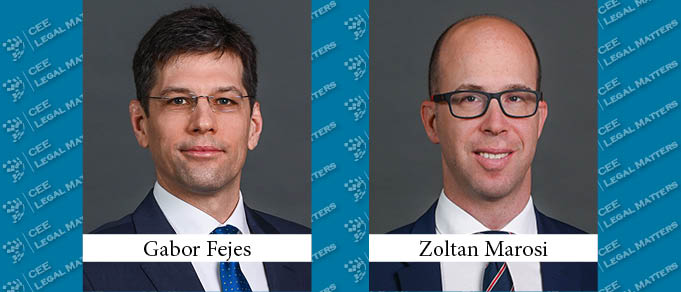In recent years, the Hungarian Competition Authority (GVH) has been extremely active in tackling highly interesting and novel issues in the digital world. The GVH commissioned a pioneer study on the importance of data in e-commerce and brought several decisions against major international players such as booking.com (for using so-classed “dark patterns”) or Apple (for using misleading terms and conditions about its Wi-Fi assistant on iPhones) as well as significant CEE players such as eMag (for misleading promotions on its online marketplace) or Alza (for aggressive commercial practices on its online site). Most of the decisions – especially where large fines were involved – have been challenged before courts, with the most recent high-level judgment coming out in the Facebook case. What happened exactly?
Quid Pro Quo: Data for Targeted Advertisements?
The focus of the GVH investigation was the issue of whether Facebook’s claim that “It’s free and always will be” (and other similar claims) on the Facebook website could be in breach of Hungarian rules implementing the EU’s Unfair Commercial Practices Directive (UCPD). The UCPD prohibits misleading advertisements and expressly blacklists free claims if a product or service requires specific consideration for use from consumers.
The GVH reviewed Facebook’s business model in detail and established that when using Facebook’s services, instead of paying with cash, users actually pay with their data, their consumer activity, and all the related (privacy and other) risks that they take. The GVH found that a key feature of Facebook’s business model is that it converts the vast amount of data it collects from consumers into cash by receiving payment from advertisers who can target users deemed to be interested in them.
The GVH took the view that while Facebook advertised itself as a free service, this was not true in an economic sense: with the provision of their data and activity, consumers had to make a “payment/consideration” to Facebook for the use of Facebook’s services. As a result, the GVH found that Facebook misled consumers in violation of the UCPD and imposed a fine amounting to HUF 1.2 billion (approximately EUR 3.3 million).
All that Glitters Is Not Gold
The case inevitably ended up before the courts: in an intriguing twist, both the Metropolitan Court and then the Hungarian Supreme Court decided to side with Facebook.
First, the Supreme Court distinguished the case from data protection matters: it stated that the question as to whether consumers are aware of the use of their data (and the way such data is used) pertains to the field of data protection law.
Then, the Supreme Court identified the principal question of the case, namely whether Facebook’s services could be considered as free when consumers – with the use of their data – are provided with targeted, instead of simple (non-personalized), advertisements. In this respect, the Supreme Court took the view that for the claim free to be misleading there has to be a substantive disadvantage for consumers, which does not stem from the immanent nature of the services, and which is capable of directly influencing consumer decisions.
In light of this test, a notable finding of the Supreme Court was that targeted advertisements are, in fact, more useful for consumers than simple advertisements. Moreover, they are also more effective in terms of the use of consumers’ time (by spending less time on advertisements that are not relevant).
As a result, the Supreme Court found that there was no consideration required by Facebook from consumers within the meaning of the UCPD and, thus, Facebook’s free claim could not be regarded as misleading. Importantly, the GVH even requested a preliminary ruling from the European Court of Justice to clarify the interpretation of EU law – which was rejected – as the Supreme Court did not see any unclear legal points in this respect.
What’s Next?
Although the Facebook case did not go as the GVH originally intended, it appears to be a mere temporary setback in the long line of digital matters open before the authority. Namely, there are already investigations against the largest Hungarian real estate website ingatlan.com, against online marketplace Wish, and gambling site Sport&Tip – to name a few of the already public proceedings. The courts are also busy reviewing several recent major GVH decisions.
Consequently, digital companies should be very much aware that, from a consumer protection perspective, Hungary remains a pioneer jurisdiction in the CEE region, working as a sort of Petri dish for novel and interesting cases.
By Gabor Fejes and Zoltan Marosi, Co-Heads of Competition and Antitrust, DLA Piper Hungary
This Article was originally published in Issue 9.3 of the CEE Legal Matters Magazine. If you would like to receive a hard copy of the magazine, you can subscribe here.




